Germans comrades writing about the history of resistance in central Europe and today’s Germany. their search for this almost lost quest is inspired by the Kurdish freedom movement. The text is first published in the Kurdistan Report.
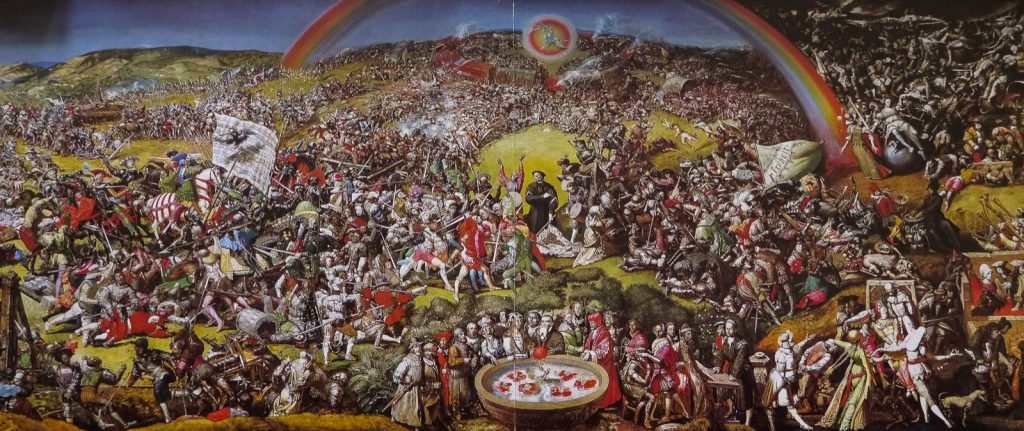
“Your revenge for the long history of wars and annihilation the Germans caused, must be to organize and defend the society against capitalism and nationalism”
Many internationalists I meet in Rojava are fed up with the struggles they come from. Their faith in a revolutionary transformation of society, whether in France, Spain, Germany or England, is weak. And nobody really wants to identify with these societies. But it is not that simple: to stop being part of a society and history is not possible. The revolution makes sure of that – and especially the Kurdish comrades.
We are sitting in the shade with tea, bread, olives and tomatoes. It is the short break from working. The conversations revolve around the history of the region, the society. They tell about the history of the Kurds in Rojava, about the last years of the revolution, about the time of the Syrian regime under Bashar al-Assad, about the effects of the worldwide youth revolt of the 68’s in Syria. And it goes even further back in the history of the Middle East. The comrades speak of Zarathustra and Mani as if they still lived among us, filling their thoughts with new spirit. They are examples of social resistance to dogmatism in faith and the glorification of the state.
And then the question to us Germans: “What is the history of your society”? At first, there is silence in our group. We German internationalists find it difficult to talk about our history. We know not enough about it. We are getting asked about the Sehids (the fallen, martyrs), the resistance against fascism. About the revolution of 1848, the Peasants’ Revolts and the heretics, about the Germanic tribes and their resistance against the imperialism of the Roman Empire… No, we don’t want to be asked about the Teutons. I can read it in the faces of the other Germans: we don’t want to be Germans. We don’t want to be associated with German arms exports to Turkey, with German fascism, with the genocide of the Herero and Nama and the Holocaust.
But how much do we know about the correlations in our history? About the unwritten history of the defeated? Their struggles and resistance against oppression, patriarchy, displacement, the state and capitalism? How could a fascist mentality prevail in society and the state?
Our Kurdish comrades always say: “Those who do not know their past cannot understand the present and therefore cannot shape the future”. So we have to go deeper into our history. To understand where we came from, how we became what we are.
A few days later we sit together again. Without an internet connection and only with the books on our E-book reader we have dedicated ourselves to the big question: “Who are we and from which history has our today’s society arisen”? Silvia Federici and Friedrich Engels – these are our first clues. We learn about societies which lived and operated according to communal and cooperative values, in which women had a central role, in which all persons were involved in important decisions, e.g. about war and peace. The places where the meetings of Germanic tribes were held were called Thingstätte (thing = people’s gathering, court gathering). Yes, today only the NPD (far right party) in Grevesmühlen and its “Thinghaus” as a Nazi meeting place remind us of these places.
We argue… does this old history even matter to us today? Does it make sense to address it and use it as a reference point in the analysis of social changes? Everything seems so appropriated by nationalist thought and fascist symbolism. But everything we read in Engels’ books about the Germanic tribes at the time of the Roman Empire contradicts the ideology of German fascism. So why should we leave this history to the Nazis?
But how did hierarchical structures develop in these very liberal societies, all the way to kingdoms, e.g. the Franconian Empire, and then to modern nationstates? Again and again we share what we have read with other internationalist comrades. Again and again we come across many similarities in the historical developments of past societies in Europe and can draw parallels to the developments in the Middle East. We discussed the development of the Franconian Empire with French comrades. It was the result of the ever-expanding and deepening structures of rule of Germanic tribes – the Franks – until the new Holy Roman Empire replaced the Imperium Romanum. It was Charlemagne who forced the new order of Christianity and feudalism upon the societies of Central Europe by violence. But even against this violence there was great resistance. It was precisely the Frisians and Saxons who did not accept the new hierarchical order and held on to the idea of the Allmende (common land). An idea according to which the goods that people need to live are not owned by individuals but by the community. Funnily enough these are the Saxons and Frisians, about whom we in Germany occasionally make fun of, which seems contradictory since we are taking up their struggles and are calling for the communalization of the convenience goods and the revival of the Allmende.
With Italian comrades we discuss Federici’s book “Caliban and the Witch” and how in the Renaissance period society resisted dogmatic Catholicism and hundreds, if not thousands, of resistant groups of heretics were formed. They interpreted Christianity in a free and democratic way and criticized the double standards of Catholic priests. And at the same time they opposed social inequality, hierarchies and the economic exploitation of peasants by the nobility. Many of those insurgents were burned as witches, incapacitated, disenfranchised. These were the first signs of peasants’ revolts, which challenged the existing order together with the heretics. Federici calls this the “first proletarian international”, since this movement did not stop at the borders of principalities and empires but extended across the whole of Europe.
„Wir sind des Geyers schwarzer Haufen – Heyah, Heyoh – Wir wolln mit Pfaff und Adel raufen – Heyah Heyoh“ (We are Geyer’s black crowd – Heyah, Heyoh – We want to fight the priests and the nobility – Heyah Heyoh). Memories from my school days occur. The melody of the song about Florian Geyer is still in my head. It is a song about the uprisings of the Bundschuh movement at the beginning of the 16th century. In Southwest Germany farmers organized themselves as “Haufen” [old fashioned word for crowd], small armed groups which burned down churches and castles and built up democratic structures of rural self-government.
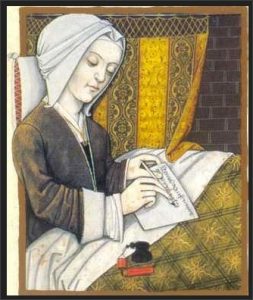
In this period the movement of the Beguines started as well. Women, like Mechthild of Magdeburg, joined together in communities and searched for a life beyond marriage or monastery walls. They lived a freer life in convents that were open to all women, where they could be independent from their husbands or fathers. These convents were not subject to any religious order or ecclesiastical hierarchy. The women elected their representatives themselves, often worked in collectives and shared their money equally. The Beguines, living communities of solidarity, quickly spread throughout Central Europe, especially in what is now the Netherlands, Belgium and Germany.
But the Beguines are not only interesting for our search for the resistant forms of life in Europe. In the branch of Jinoloji [women’s science] women are also researching this history. And just like in those times villages are being built for women again. In the village of Jinwar women live autonomously from men, create their own economic foundations and relearn social knowledge, e.g. natural medicine that was nearly forgotten.
But what happened to the Beguinages in Europe? During the Reformation, backed up by Luther’s view that women were created exclusively as housewives and mothers and that individual economic success was a sign that one was chosen by god, the last Beguine Conventions were forced to dissolve.
We come across Max Weber’s book “The Protestant Ethic and the spirit of Capitalism”, we read Öcalan’s thoughts on the Emergence of Capitalism… Protestant morality no longer had anything to oppose the exploiting capitalism in Central Europe – no values, no limits. Everything became possible, the only justification from now on was profit.
On the playlist of comrades from England we find the song “Hey ho nobody home meat nor drink nor money have I none”. It is the melody of the song “Heho spann den Wagen an” [Heho harness the carriage] – we also know it from our school days. It’s an old song from the early years of the growing movement of landless people in England. Driven from their fields and not willing to life in the city and factory, more and more people roam through the country – not infrequently begging and stealing. What other option was left for them, since they didn’t accept a life of exploitation and servitude? In Germany it is especially the weavers who become famous for resisting capitalism and industrialization in the middle of the 19th century. They destroyed their looms and started riots. We will be humming “Deutschland, wir weben dein Leichentuch” [Germany, we weave your shroud] for the next days while working. It is the scoring of Heinrich Heine’s poem with same name, a reckoning of the beginning industrialization and the monarchy.
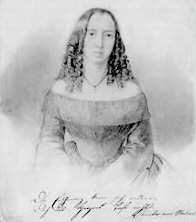
What could have become out of this old empire? After Napoleon was defeated and the old borders were established again, many people pinned their hopes on a united Germany. They hoped for the unification and identity of the people on the basis of rights and freedoms and not serfdom and servitude. But did it have to become the German nation state? Unifying everything, creating nationalism, establishing colonialism as the key foreign policy and oppression as the domestic one. Yes, there were alternatives, there is never anything without an alternative. The Baden Revolution arose from one of these alternative ideas. Revolutionaries like Gustav Struve, Amalie Struve and Friedrich Hecker stood for a different idea of Germany, they stood for a socialist republic. They were influenced by ideas of the Enlightenment, the beginning socialist movement and traditional forms of social life. They were concerned with the liberation of the individual, economic equality, and self-government of society according to traditional forms – not according to the values of bourgeois democracy. But even this short revolution would have completely disappeared from our consciousness, if we had not sung the Heckerlied to lift our spirits in the evenings we spent together.
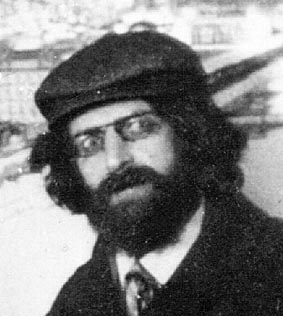
But for the young socialists of these days the Baden Revolution was certainly a moment of learning and recognition. These experiences contributed in part to the fact that only a few decades later (immediately after World War I), Council Republics were founded throughout Germany, in which society took its future into its own hands. Once again a time had come when the path of social development was not predetermined, but the outcome of the struggle between radical democracy and state centralism was still open. A struggle in which so many revolutionaries gave their live while defending their idea of freedom. The determination and commitment in the resistance of revolutionaries like Erich Mühsam, Anita Augspurg and Kurt Eisner has become more imaginable through the experiences of the revolution in Rojava – our clarity of what is to be defended has grown.
Well then? Shall we continue? There comes the smashing of the Council Republics with the force of rising fascism. This force which destroyed so much, if not everything: parties, unions, trust, hopes. And in its worst form, the Holocaust, this force even shattered the belief in the human ability to live together in peace.
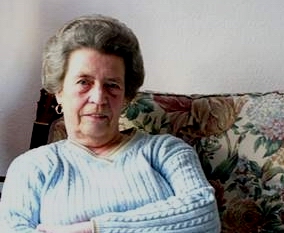
This history, too, pulls its strings in a region that is only a few kilometres away from us. “The role model of German fascism, the personal role model of Hitler was Atatürk and the genocide of the Armenians”, Kurdish comrades who grew up in Bakur [Northern Kurdistan] and joined the defence units (YPG/YPJ) to defend the city of Kobane against the Islamic State, tells. “Hitler saw Atatürk as a shining star of a nationalist struggle for the creation of a nation that should be based on one language, one flag and one people. And the Kurdish liberation movement is still resisting against this state today”. And where was the resistance against German fascism? Did they not exist, or did they disappear in history – written by the ruling class? The second thing is rather true than the first. The Edelweiss Pirates, Alliance of Red Front-Fighters, Red Women and Girls’ Federation, Revolutionary Union Opposition and individual Partisans, are only some of the many names and organizations which organized against German fascism. And behind the organizations there were people with biographies which we can read and understand, like Maria Wachter, Georg Elser, Erna Eifler, Wolfgang Abendroth and Gertrud Koch – we could present a list over many thousands of names.
We tell the Kurdish comrades about the Republic of Schwarzenberg, a small region in the Erzgebirge. At the end of World War II, it lay for six weeks between the advancing armies of the Allies. Antifascists in Schwarzenberg did not wait until the Allies came, instead they formed their own antifascist action committees in more than 20 towns and villages of the region. Such anti-fascist action committees were formed in many cities of the former German Reich. Often these structures of antifascist resistance made the first arrests of Nazis among the old administrations and in factories. They organized the tasks that were necessary for the survival of the people and put the infrastructure back into operation. They were also the driving force in the organisation of workers in new trade unions, which held on to socialist ideas. But in the East as well as in the West there was no interest in giving space to the anti-fascist committees to build new social structures.
Soon the SPD (Democratic Socialists party) forbade its members to join the committees and the KPD (Communist Party of Germany) tried to integrate the committees into its construction of a Socialist Unity Party. As different as the motives for this were, one motive was the same: the enforcement of a functioning, centralized state and the disempowerment of political self-organization of the people. Would it have been possible to rebuild socialist council structures in a New Germany? Yes, it would have been possible.
Like the confederal structures of Germanic tribes in the first centuries after the common era began, the beginnings of the Renaissance with its heretics and peasants’ revolts, the revolutions of 1848 and the Council Republics of the Weimar period, the post-war period was a historical moment where anything else would have been possible.
It would not have remained only a possibility if only the democratic, revolutionary forces had been able to assert themselves against the forces and ideology of the state.
But where did all this people get the strength and will for their struggles from? After hearing this question one of our comrades laughs. Her name is “Amargi”, which means “freedom”. She says that with the emergence of the first hierarchies in the societies of Mesopotamia, the word “freedom” also appeared. This word originated from the knowledge of a social life in freedom, mutual help and the connection with nature. “From this knowledge of a free life, people drew their will and strength to resist and to fight for a renewed freedom”. The basis for this, our Kurdish comrades say, is that the people feel connected with their country and their society, the country and society they come from and where they live. They call this “Welatparezi”, “defence of the homeland”. And also for us internationalists, this term has become commonplace, when we walk through the districts to visit exactly those families. But in German? what would it mean, “Love for and defending of the homeland”?
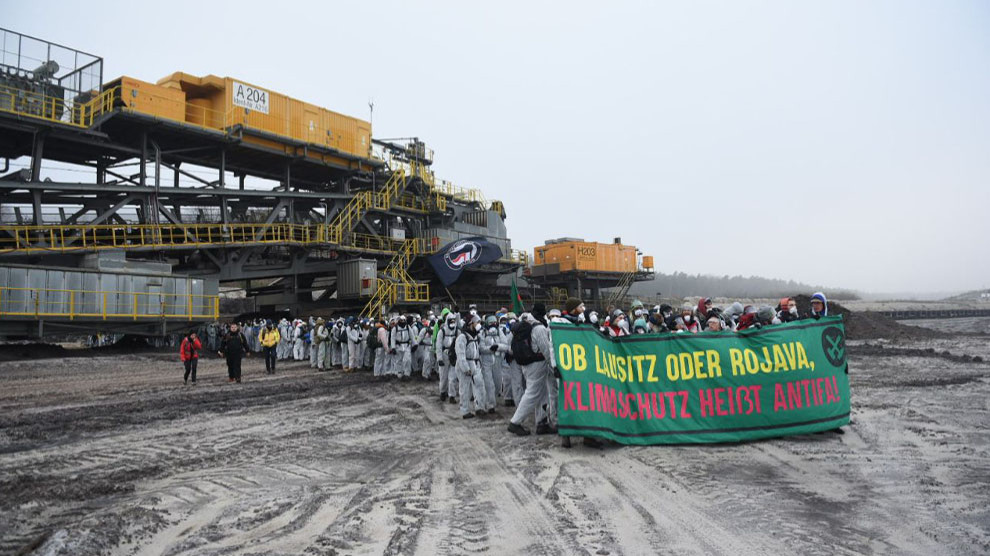
We are interested in hearing news of the “Ende Gelände” protests against coal mining in Germany. People whose villages are destroyed and thus their homes and their social draught is destroyed, are standing at the edge of the mining area. Activists climb into the trees of the Hambach Forest to defend a piece of nature. Resolutely anti-fascists face the new right movement in their neighbourhoods…. These images and voices give us an idea what “Welatparezi” can mean.
We are the ones at the end of a chain of interwoven socialist, feminist, ecological, democratic and anarchist struggles. We are the ones who are the latest link in the struggle for land, equality, solidarity and freedom that has run through the whole of history, including Europe.
Amargi says about our handling of this history and our societies:
“The Kurdish movement started to organize against colonialism in Kurdistan. Your revenge for the long history of wars and annihilation the Germans caused, must be to organize and defend the society against capitalism and nationalism”.